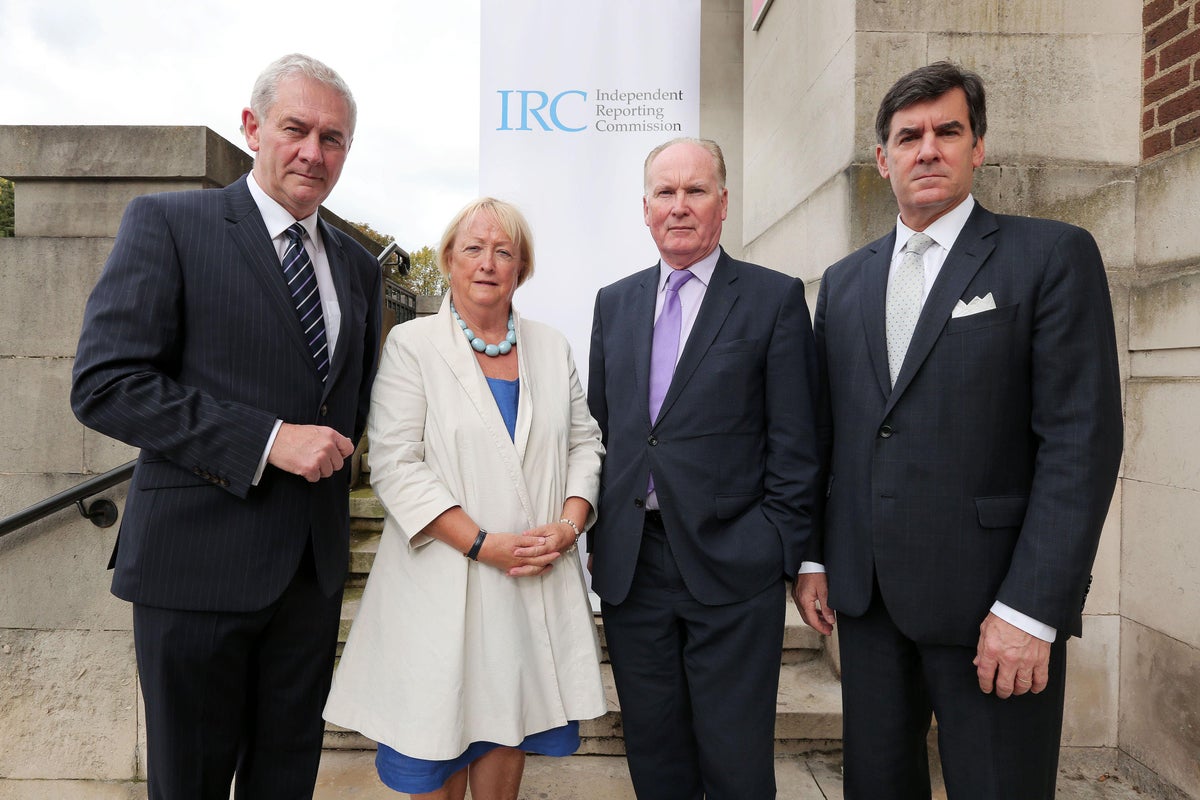
Political agreement over the Northern Ireland Protocol is needed to help prevent loyalist paramilitary groups from “finding momentum”, a Westminster committee has heard.
Members of the Independent Reporting Commission (IRC) last week published their latest report, which urged a formal process of engagement with the paramilitary groups to achieve transition and disbandment.
The IRC, set up in the 2015 Fresh Start Agreement, publishes annual reports on progress towards ending paramilitary activity.
The four commissioners – John McBurney, Monica McWilliams, Tim O’Connor and Mitchell Reiss – gave evidence to the Northern Ireland Affairs committee at Westminster on Monday.
DUP MP Carla Lockhart quizzed the commissioners on the impact of the row over the post-Brexit trading agreement which has been opposed by unionists on loyalist paramilitary groups.
There is no doubt that those who are involved in the paramilitary groups on the loyalist side see the protocol as an issue that can generate a momentum for them, and that's a momentum that we can well do without— John McBurney, IRC
The latest IRC report noted potential for increased loyalist paramilitary actions amid tensions over the protocol.
Last spring saw violence on the streets connected to the protocol.
Ms Lockhart asked whether political action such as the Northern Ireland Protocol Bill helped deliver the message that politics is the way forward.
Mr McBurney welcomed the fact that evolving protests around the protocol were overtaken by political endeavours.
“But be in no doubt, and none of us are, that things can flare up again if an issue which seems unresolved and resolvable then becomes such a frustration that it pours out into our streets once again – and that cannot be allowed to happen,” he told MPs.
“There is no doubt that those who are involved in the paramilitary groups on the loyalist side see the protocol as an issue that can generate a momentum for them, and that’s a momentum that we can well do without, and the way to do without it is by reaching a solution.
“There’s no other way for any of us to make progress other than to find a means of solving it and getting things back on to an even keel in all respects, including in the endeavour to bring about the disbandment of the groups.”
Mr McBurney said loyalists stood back due to “political endeavours” at Stormont.
The DUP walked away from the Executive and are refusing to nominate a Speaker or ministers to allow Stormont to function until the UK Government takes action on unionist concerns around the protocol.
“It is partly because of those political endeavours which have caused Stormont to be as it presently is that loyalist paramilitary groupings have stood back mercifully from any further street agitation or otherwise,” Mr McBurney added.
“That means we’re treading a very difficult path where we need progress in relation to resolve the protocol scenario and then the quick re-establishment, and as quickly as possible, of the Executive and the institutions.”
He said legislation around organised crime to tackle paramilitary groups, which the IRC has called for, can then flow as a consequence.
The commissioners reiterated their view that it has been a mixed year in terms of paramilitary activity and that while there were fewer attacks and fewer forced from their homes, the groups – both republican and loyalist – remain a clear and present danger.
While the report did not mention any groups by name, Ms McWilliams said they know there is a “real problem” with the East Belfast UVF and there are “problems” in terms of the INLA.
Mr Reiss also made a plea around the terminology for so-called paramilitary-style attacks – where people, often young people – are subjected to an assault by appointment by groups.
He said they should be referred to as pre-meditated assaults and criminal behaviour, and if levelled at juveniles then referred to as child abuse, to avoid giving them “any veneer of justification”.







